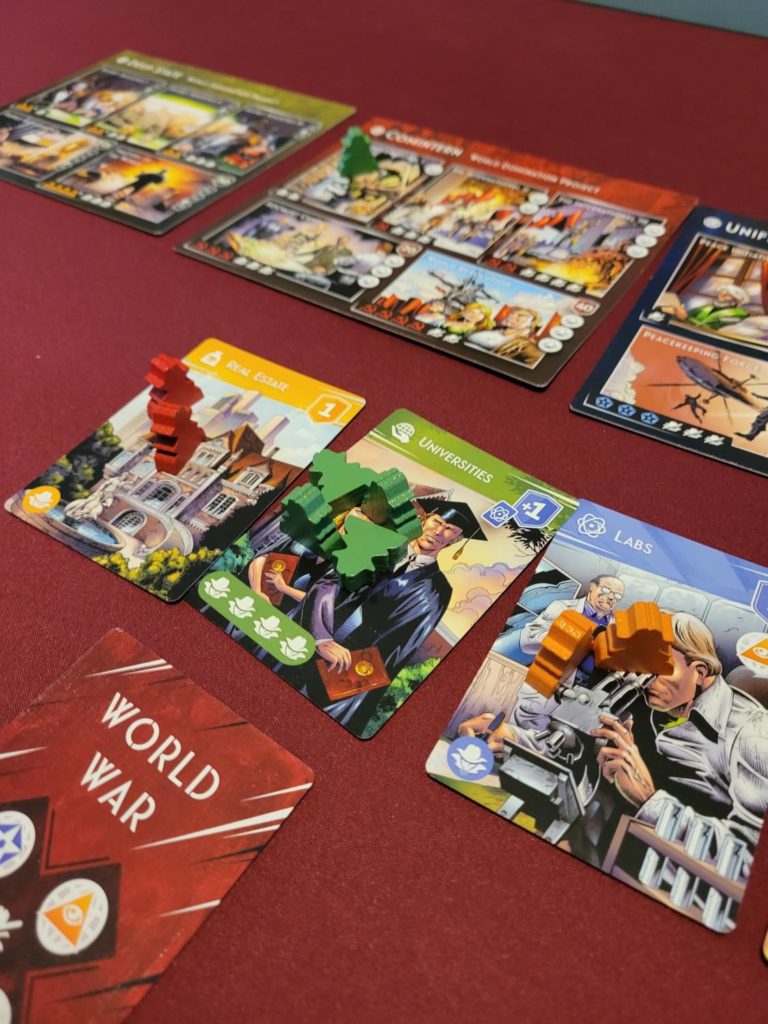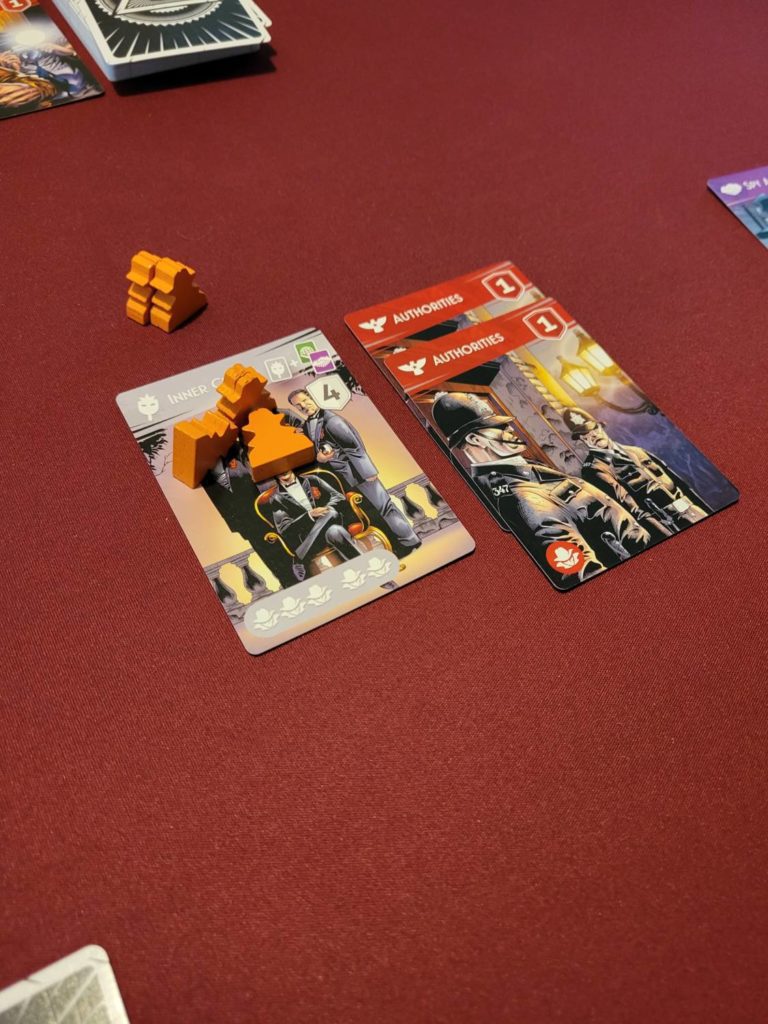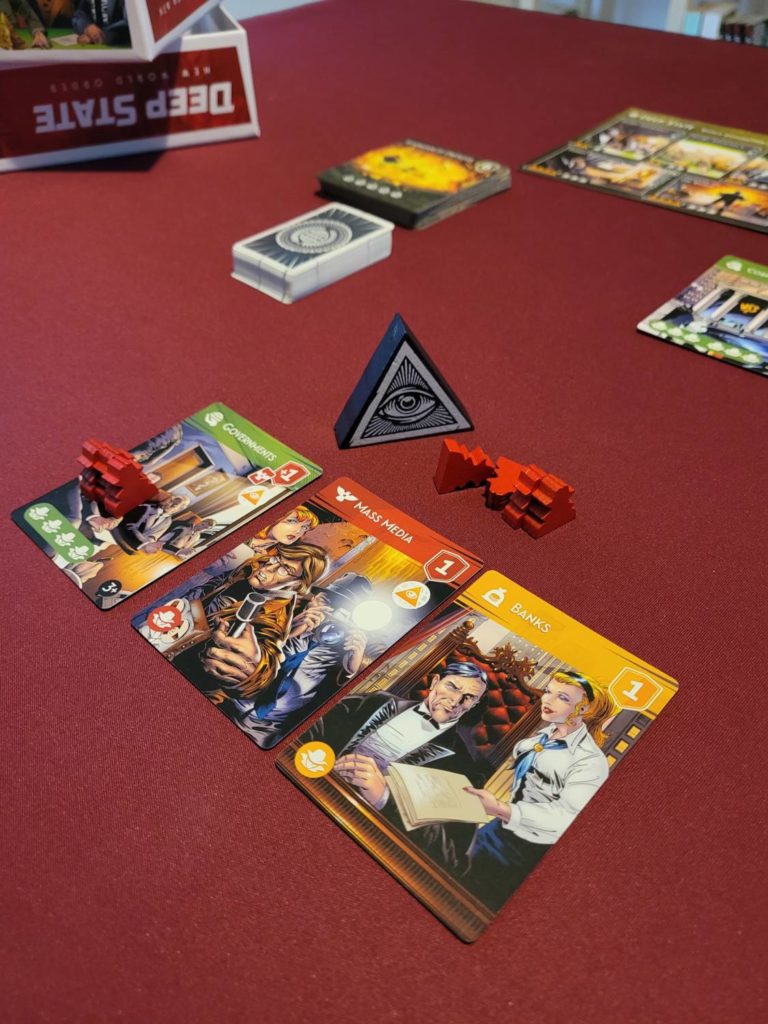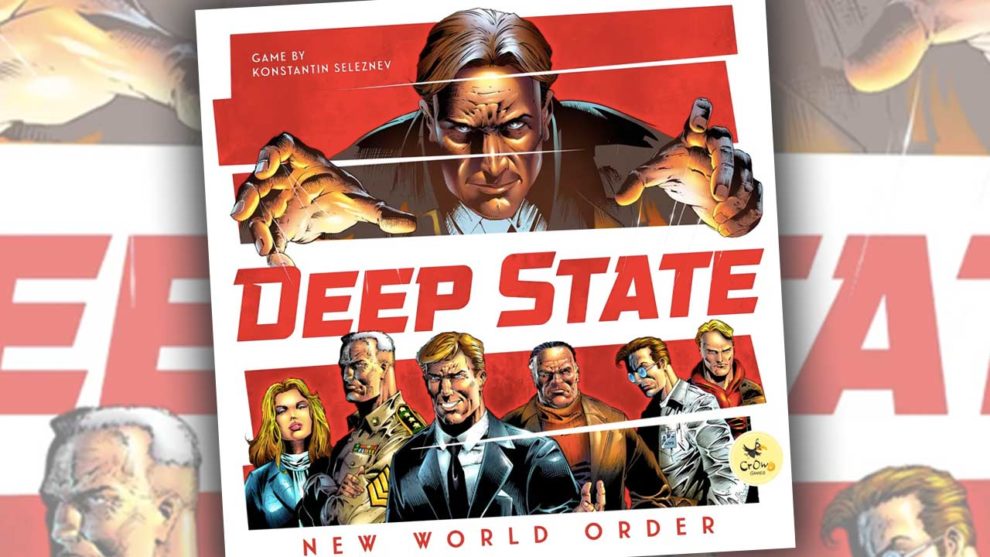Deep State or Deep Sleep?
A game called Deep State promises machinations, intrigue, and skulduggery. The actual Deep State is a drafting game that feels as onerous as the bureaucracies you’re attempting to overthrow.
The game presents you with two areas to manipulate: First, four mats, each functionally serving as a track to advance on that grants powers and endgame points; Second, a row of cards (scaled to player count) which players place workers (“agents” in game parlance) to claim for their individual tableau. In a 3-player game, there are 8 Objective cards available, and each game round, the leftmost 3 are available for players to attempt to claim. There are some additional rules for 5 players that I won’t cover here.

Play takes place in rounds, with each player taking an action. There is another phase that occurs once all the Objective cards have been claimed. The first player token, known as the Supervisor, travels around to each player in clockwise fashion after a round is complete. Each player takes one action. The Supervisor receives two agents from their pool (which starts with 3) but their actions are limited to tying to claim an Objective card or accomplishing a single big contract, called a Covert Operation, which requires a ton of agents to claim. The other players can spend their single action on the two things just described, they can try to move up the “World Domination” tracks (which require spending agents and having drafted certain cards), or they can get a single new agent.
After each player takes an action, players claim cards that they still have agents on, the Supervisor token passes clockwise, and the game continues. Each card requires a certain amount of agents to claim, sort of like a bid, and other players can outbid for control of a card, which boots out the previous player and results in a small kickback in the form of a Treaty card.
Contracts by any other name
After all the cards have been claimed from the display, players can fulfill Treaty cards from their hands, which require certain configurations of tableau cards to execute. They have many different effects, often allowing you to chain multiple treaties together if you have the necessary prerequisites. Then, new cards are laid out, and it all starts over. Multiply this by 5 or 6 rounds, and the game is over. Players total up points from their tableaux, and most points wins.

If it sounds boring, it’s because it is. The game presents what is functionally a drafting game and doubles the typical playing time by forcing players to claim points and cards at a glacial pace. Interfering with the plans of other players slows the game down even more, and from what I could tell, there is minimal reason to stop another player from getting a card they want. Instead, you want to claim the cards that you need for your Treaty cards. Because these treaties are hidden information (you can draft them at the game start, but it doesn’t add much), there’s not much player interaction or interplay of any kind.
I hesitate to say that the game is dependent on flip luck, but it is. There are a few extra expansions included in the box that add even more cards, and more flip luck. Managing your pool of secret agents feels much more like bean counting than deploying super-spy resources around the world to execute nefarious plans, and when players overspend, that can further slow the game down.

The artwork is excellent in a traditionally overdrawn comic-book sort of way, and I appreciated that.
Final thoughts
As a person who relishes an opportunity to discover conspiracies, point fingers, and embrace the drama of a super-elite class trying to dictate world affairs (which in no way maps to reality at all, nothing to see here) Deep State was a massive disappointment. I am not sure who this game is for, and I am not sure why the design team opted to break the clean mechanism of drafting into a stutter-stop affair, but that’s what the game is. I can’t recommend it in good faith.











